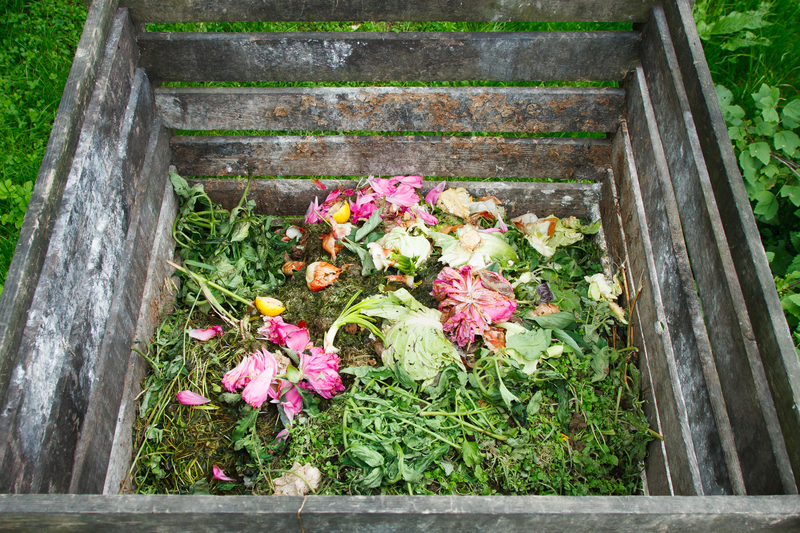How to Handle Hard Rubbish: A Comprehensive Guide
Dealing with hard rubbish can be a daunting task for many homeowners and businesses. Whether it's clearing out old furniture, disposing of broken appliances, or managing construction debris, proper disposal of hard waste is crucial. In this comprehensive guide, we'll walk you through effective methods, considerations, and best practices to help you handle hard rubbish efficiently and environmentally responsibly.
Understanding Hard Rubbish
Before diving into the disposal methods, it's important to understand what constitutes hard rubbish. Hard rubbish, also known as bulky waste, includes large items that cannot fit into regular bins. Common examples are:
- Old furniture such as sofas, mattresses, and tables
- Household appliances like refrigerators, washing machines, and ovens
- Electronic waste, including TVs and computers
- Construction and demolition waste
- Yard waste such as branches and tree stumps
Proper management of hard waste is essential to avoid environmental pollution and potential fines from improper disposal.

The Importance of Proper Hard Rubbish Disposal
Responsible disposal of hard rubbish benefits the environment, society, and your community. Here are a few reasons why it's important:
- Environmental Protection: Disposing of hard waste correctly minimizes the risk of pollution and harm to wildlife.
- Conservation of Resources: Recycling and repurposing materials reduce the need for raw materials, conserving natural resources.
- Community Cleanliness: Proper disposal helps maintain a clean and pleasant environment.
- Compliance with Regulations: Many local councils have strict guidelines for disposing of bulky waste; compliance ensures you avoid penalties.
Methods for Handling Hard Rubbish
1. Council Hard Rubbish Collection Services
Many local councils offer hard rubbish collection services, where they pick up large household items from the curbside. This service is usually scheduled at specific times of the year.
- Contact your local council for details on dates and guidelines.
- Ensure your items are placed neatly and without blocking sidewalks.
- Adhere to allowed quantities and items list provided by the council.
2. Recycling Centers
Recycling centers are a great option for disposing of electronics, metals, and other recyclable materials. These centers help in recycling and repurposing waste, reducing landfill usage.
- Identify local recycling centers accepting your type of hard rubbish.
- Separate and sort items before transporting to the center to save time.
3. Skip Bins
Hiring a skip bin is a convenient solution for extensive cleanouts and renovations. Skip bins accommodate a variety of waste types and can be delivered to your home for easy loading.
- Choose the right size: Estimate the volume of waste to select an appropriately sized bin.
- Verify waste restrictions: Some items may not be accepted in skip bins, such as hazardous waste and chemicals.
DIY Disposal vs. Professional Waste Removal
DIY Disposal
Undertaking a DIY approach might seem cost-effective but consider the following:
- Availability of adequate transport for large items.
- Time and effort required for sorting, loading, and transporting waste.
- Access to appropriate disposal facilities.
Professional Waste Removal Services
Hiring professional services offers several benefits:
- Efficiency: Professionals handle collection and disposal, saving you time and hassle.
- Compliance: Services ensure adherence to local disposal regulations.
- Convenience: Ideal for large-scale cleanouts and commercial settings.

Environmental Considerations
Minimizing your carbon footprint during hard rubbish disposal is vital. Here are some eco-friendly tips:
- Reuse and Donate: Consider if items can be repurposed or donated to charities.
- Recycle where possible, especially electronic waste and metals.
- Use services that prioritize recycling and sustainable practices.
Conclusion
Proper management of hard rubbish is not only a personal responsibility but a community obligation. By utilizing services like council collections, recycling centers, and professional waste removers, you contribute to a cleaner and more sustainable environment. Whether you choose a DIY pathway or professional assistance, ensure environmentally-friendly practices and compliance with local regulations. Remember, responsible disposal of hard waste protects our natural resources and the world around us.